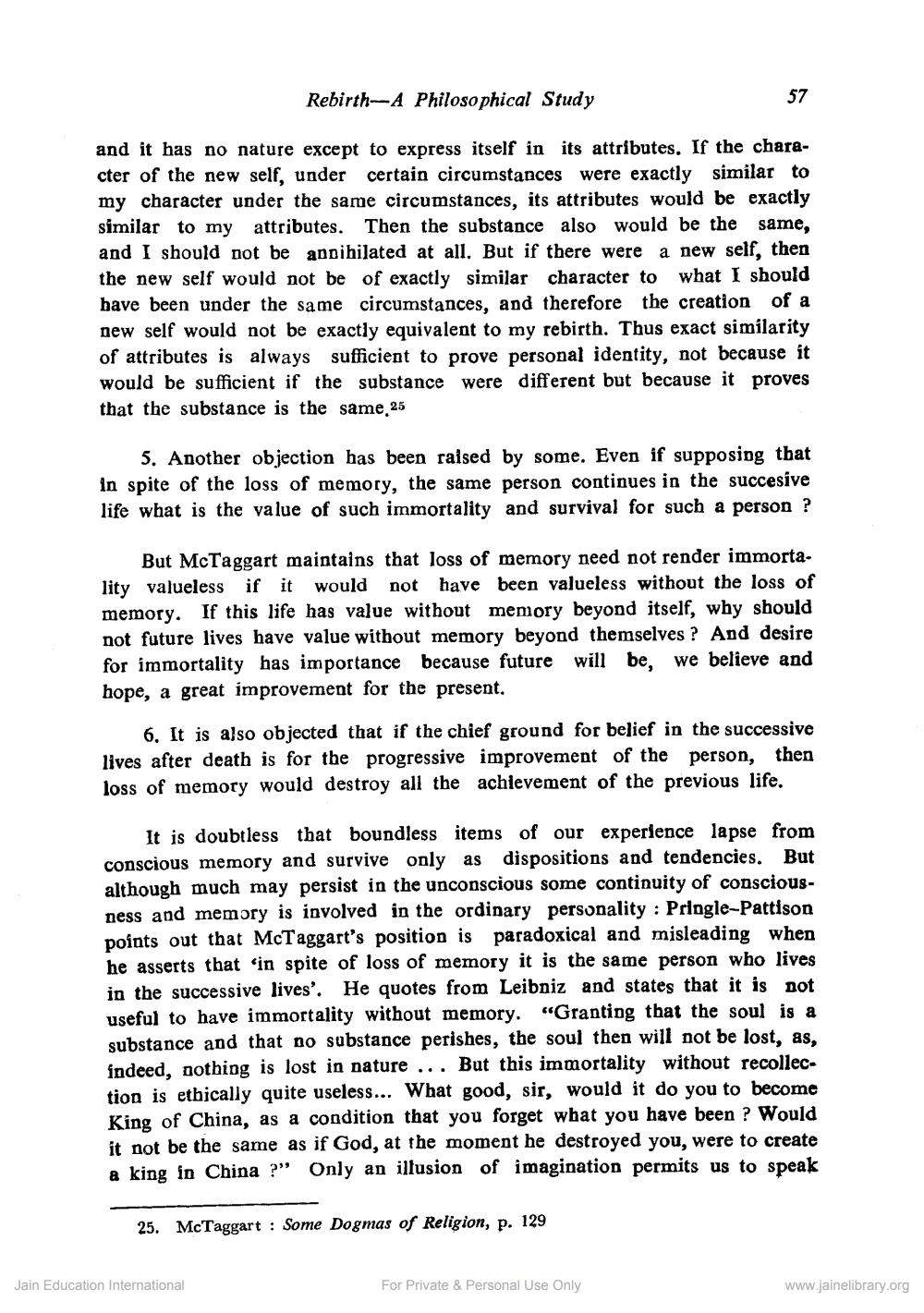________________
Rebirth-A Philosophical Study
and it has no nature except to express itself in its attributes. If the character of the new self, under certain circumstances were exactly similar to my character under the same circumstances, its attributes would be exactly similar to my attributes. Then the substance also would be the same, and I should not be annihilated at all. But if there were a new self, then the new self would not be of exactly similar character to what I should have been under the same circumstances, and therefore the creation. new self would not be exactly equivalent to my rebirth. Thus exact similarity of attributes is always sufficient to prove personal identity, not because it would be sufficient if the substance were different but because it proves that the substance is the same.25
5. Another objection has been raised by some. Even if supposing that in spite of the loss of memory, the same person continues in the succesive life what is the value of such immortality and survival for such a person?
57
But McTaggart maintains that loss of memory need not render immorta. lity valueless if it would not have been valueless without the loss of memory. If this life has value without memory beyond itself, why should not future lives have value without memory beyond themselves? And desire for immortality has importance because future will be, we believe and hope, a great improvement for the present.
6. It is also objected that if the chief ground for belief in the successive lives after death is for the progressive improvement of the person, then loss of memory would destroy all the achievement of the previous life.
It is doubtless that boundless items of our experience lapse from conscious memory and survive only as dispositions and tendencies. But although much may persist in the unconscious some continuity of consciousness and memory is involved in the ordinary personality: Pringle-Pattison points out that McTaggart's position is paradoxical and misleading when he asserts that in spite of loss of memory it is the same person who lives in the successive lives'. He quotes from Leibniz and states that it is not useful to have immortality without memory. "Granting that the soul is a substance and that no substance perishes, the soul then will not be lost, as, indeed, nothing is lost in nature ... But this immortality without recollection is ethically quite useless... What good, sir, would it do you to become King of China, as a condition that you forget what you have been? Would it not be the same as if God, at the moment he destroyed you, were to create a king in China ?" Only an illusion of imagination permits us to speak
25. McTaggart: Some Dogmas of Religion, p. 129
Jain Education International
For Private & Personal Use Only
www.jainelibrary.org




